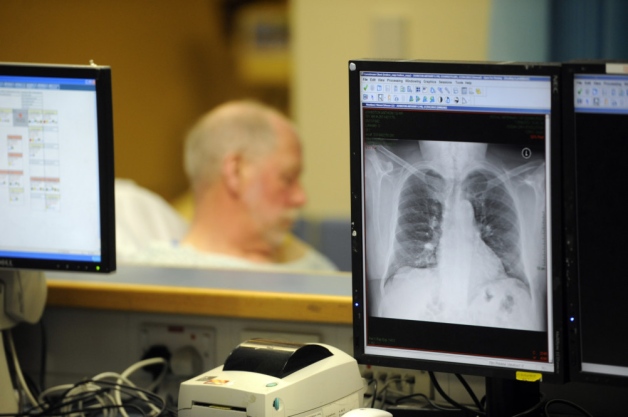Home
About Us
Exploring the Potential of Satellite-Based Mission Investment and Financing
Foundation: Gates Foundation
There's a new way of helping the world's poorest people, and it doesn't involve sending in satellites.
Instead, the Bill and Melinda Gates Foundation is putting its money where its mouth is, according to a report published Tuesday in the journal Nature Communications.
The foundation is investing $50 million in a new way of looking at climate change, poverty, and inequality: through the use of satellite data.
"By using satellite data to monitor the impact of investments in various sectors, including agriculture, energy, and infrastructure," the report explains, " investors can monitor the impact of their investments in real-time."
The Gateses are putting their money where their mouth is: They're investing in a project called Terra-i, which uses satellite imagery to monitor deforestation in the Amazon rainforest.
"By tracking changes in land use over time, Terra-i has been able to identify areas where deforestation is occurring and work with local communities to develop sustainable land use practices," the report states.
Terra-i is also working with communities in Brazil to develop sustainable land use practices.
The report notes that using satellite data to fund such projects can be a challenge, as it requires specialized expertise to analyze and interpret the data, and it can be hard for smaller investors and organizations Read the Entire Article
Selected Grant News Headlines
A customized collection of grant news from foundations and the federal government from around the Web.
LIVIC Civil recently contributed $1,000 gold level mission investment in Focus Central Pennsylvania for 2025.These resources are to advance the mission to attract investment that cultivates economic...more
Foundation: Silicon Valley Community Foundation, California Endowment
In 2024, Los Angeles will host the Mission Investors Exchange 2024 National Conference, an annual conference that brings together more than 750 philanthropy and impact investing leaders from across...more
Foundation: California Community Foundation, California Endowment
Ava DuVernay financed her latest film with money from the Giving Pledgean initiative of the California Endowment, the largest US foundation to commit its entire $4 billion portfolio to social and...more
Foundation: Marguerite Casey Foundation, Marguerite Casey Foundation, Rockefeller Philanthropy Advisors, Skoll Foundation, Target Foundation, Ford Foundation, Philadelphia Foundation, Rockefeller Foundation
"The US creative economy was most recently valued at over $1 trillion by the National Endowment for the Arts," per a press release, "even before considering film, fashion, video games, beauty, food,...more
ExxonMobil is in the midst of dozens of lawsuits from states and localities accusing the company of lying about its role in climate change and the dangers of burning fossil fuels. Now, the oil...more
An auditor hired by the West Virginia Public Service Commission to look into two electric companies owned by FirstEnergy found evidence of wrongdoing, but it's not clear whether the companies...more
Foundation: Gates Foundation
Bill and Melinda Gates are putting their money where their mouth is. The world's two biggest philanthropists have each donated $50 million to the Bill and Melinda Gates Foundation, CNN...more
Foundation: Gates Foundation
There's a new way of helping the world's poorest people, and it doesn't involve sending in satellites. Instead, the Bill and Melinda Gates Foundation is putting its money where its mouth is,...more
Foundation: MacArthur Foundation, Ford Foundation
"To meet the challenges of our time, foundations must deploy resources across the full spectrum of capital, including grants, catalytic capital, and endowment investments that align with mission and...more
Foundation: MacArthur Foundation, Ford Foundation
"To meet the challenges of our time, foundations must deploy resources across the full spectrum of capital, including grants, catalytic capital, and endowment investments that align with mission and...more
PRI News from...
Kresge Foundation
Social Entrepreneurship
Spotlight
Social Enterprises: Key to Enhancing a Nation’s Health

Glasgow Caledonian University (GCU) has launched a series of noteworthy research projects to learn if social enterprises can help Scotland lose its “sick man of Europe” label and boost the nation’s overall health.










